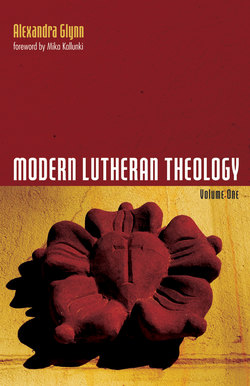Читать книгу Modern Lutheran Theology - Alexandra Glynn - Страница 14
На сайте Литреса книга снята с продажи.
The children of this world are wiser
ОглавлениеI am constantly surprised by how seldom people who are Christians are willing to forgive. They, like the heathen in darkness, forgive small slights and little things, usually easily. And they go for years sometimes without anything ever happening to them that is difficult, offensive, or abusive of them. But then when that moment comes, we find out by the fiery trial that this Christian does not want to forgive. For he truly has been wronged. He is in the right, and the other is in the wrong. And the fact that the Christian is in the right and has truly been wronged makes the Christian think that somehow this makes it acceptable not to forgive. He retaliates. He calls the other person evil names as they have done to him. When conversing with other people about the other person, he hints at how bad the person is who abused him. He counter-sues. He never stops to think—this accusation, this slapping, this public shaming, has come to try me, to see what is in my heart. To answer this question: will you forgive even this?
Jesus tried (I often feel, in vain) to teach Christians about this matter of forgiving people who hurt and shame us. Jesus said something enigmatic, something that should make every child of God, every child of the kingdom, every child of light, stop and ponder. Jesus said that “the children of this world are in their generation wiser than the children of light” (Luke 16:8). For if you read the parable about the steward that precedes this statement, you will see that the children of this world, do, in fact, forgive. It is a partial, not a full, forgiveness. That is true. For in the parable, one owed one hundred and the steward forgave fifty of it. The other owed one hundred and the steward forgave eighty of it. So he only partially forgave the debt. But the point is, he did forgive some of it. And, it is also true, as the parable relates, that the child of this world did what he did out of fear and self-love, not because it was the right thing to do. For it says that he did not want to lose his job (Luke 16:3). And he also wanted to keep his friends (Luke 16:4). So he forgave some, but not all, and he forgave for selfish reasons. Nevertheless, this forgiveness was effective in his life. He certainly pleased his lord. And it is likely that he kept friends, and maybe even his high position. We see this in our own jobs and relationships every day. If we let things go, if we forgive, if we forget, if we overlook faults, we are better off.
Christians should not be like this steward, who forgave only partially and for the wrong reasons. Christians should forgive because it is urged by the Holy Spirit in a pure conscience, not because of fear or self-love. And Christians should fully and completely forgive. Indeed, if they do not forgive, they will not be forgiven, as we say in the Lord’s Prayer. And Christians should forgive even if it does not benefit them in any way—indeed, even if for some reason it might harm them in a temporal sense.
But a lesson of the parable remains—you are better off if you forgive, whether you are a child of the world or a child of God. Indeed, if we all held grudges nobody would ever talk to anyone. For we all offend.
So then, why don’t we forgive? Again, the big offenses, the things that really hurt, that affect our pride, our reputation, why don’t we forgive these?
The parable of this steward follows directly after the parable of the prodigal son and his older brother. The older brother could not forgive. So what happened to him in the end? The text gives a grave picture of the state of this older son’s heart.
Dearly beloved friends, let us all confess that we are unforgiving, implacable, corner-reapers. Friends,
Owe no man anything, but to love one another, for he that loveth another hath fulfilled the law. For this, “Thou shalt not commit adultery, thou shalt not kill, thou shalt not steal, thou shalt not bear false witness, thou shalt not covet;” and if there be any other commandment, it is briefly comprehended in this saying, namely, “Thou shalt love thy neighbor as thyself.” Love worketh no will to his neighbor; therefore love is the fulfilling of the law (Rom 13:8–10).
